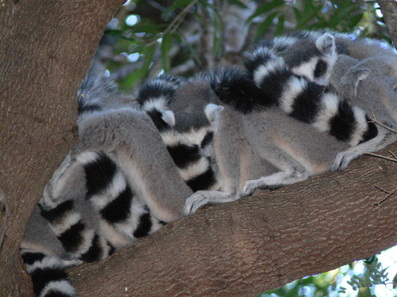|
While we all accept that human behavioral development is shaped by an individual's social environment, it is unclear which elements of human socialization are adaptive and which are not. This question is hotly contested and inevitably dredges up millenia-old debates about the importance of "nature" versus the importance of "nurture" in human behavioral outcomes. Perhaps the fact that we've not settled this argument (despite so much quarreling for so long) is because we have been asking the question in the wrong way. Nurture is an integral part of successful mammalian nature, by virtue of our mammalian biology--there was never really any good reason to conceive of the two as separable.
|
My research ultimately seeks to understand which elements of "human nurture" were probably selected for in our evolutionary history by identifying similar and dissimilar elements of socialization important in the successful development of other primates.
I am using observational data on the social interactions of wild ring-tailed lemurs during their development at Beza Mahafaly Special Reserve to clarify which social factors may (or definitively do not) contribute to the development of sex-typed social behavior in this species.

